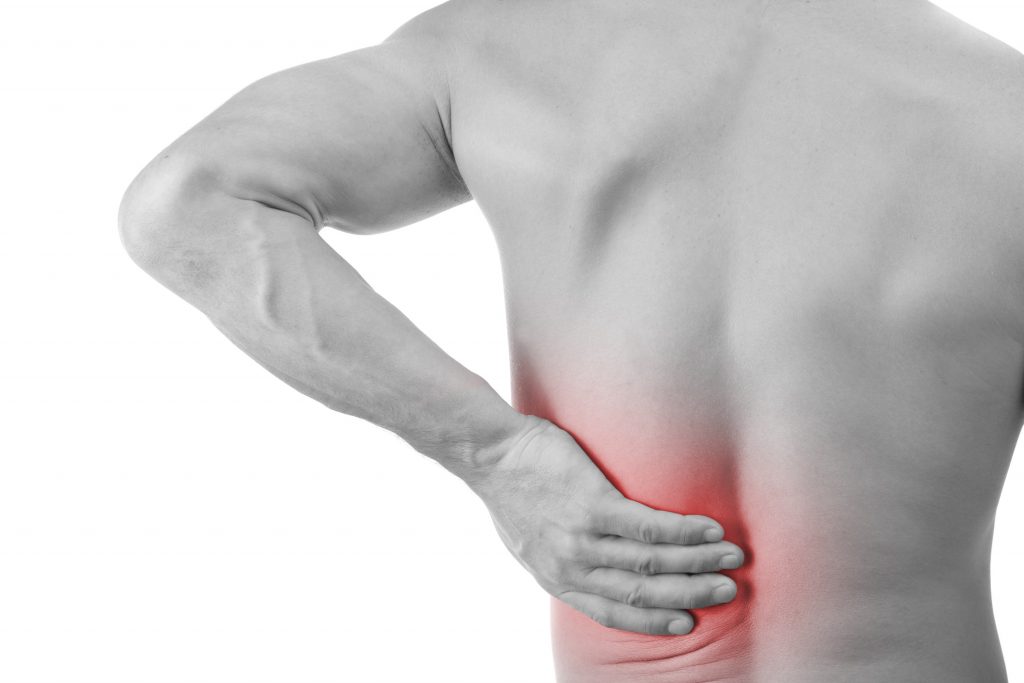Do you notice sharp, shooting pain or constant tingling in your limbs during daily activities like cooking, typing, or even holding a phone?
For many people who suffer from trapped or a pinched nerve, this is reality. Trapped nerves, or pinched nerves, are when too much pressure around a nerve from muscles, tendons, bones, or cartilage gets in the way of how a nerve works. It can lead to pain, numbness, muscle weakness, and many pinched nerve symptoms.
Nerves that have become trapped dramatically affect everyday life. Simple activities such as dressing, driving, or sleeping are painful. Constant discomfort inability to move could cause so frustration, decreased productivity and, anxiety or depression.
If you suffering from the above case, you might wonder, “Can a chiropractor help with a trapped nerve?”
Fortunately, chiropractic care for pinched nerves is now a viable, noninvasive treatment for nerve pain. Chiropractors can treat musculoskeletal disorders, and nerve compression is one of them. The chiropractic health care system relieves pressure on the affected pinched nerve by the specific spinal adjustment and other care directed to relieve pain and restore normal function.
This guide will cover the causes and symptoms of the trapped nerve condition, how chiropractic care can treat this condition, and the potential benefits of chiropractic treatment.

What is a Trapped Nerve?
Tissues put enough pressure on a nerve that it gets trapped. The pressure causes the nerve to send signals that aren’t correct, and therefore, the area becomes painful, numb, tingling, or weak. Any part of the body can have nerves caught in it, and most commonly, this will be in the neck, back, or wrist.
Pain and cold that come in tell the nerves in the body to send messages to the brain and other body parts about what to do and when. However, if a nerve is compressed in any way, it can disrupt those signals and produce a wide range of symptoms, including pinched nerve pain.
What Causes a Trapped Nerve?
Poor Posture: Misalignments of the spine from bad posture (sitting or standing) can extend periods with bad posture for many years, and the nerves are then vulnerable to compression. For example, if you spend hours at a computer and sitting there, any pinching of the nerves in the neck and back.
Repetitive Stress: However, repetitive activities, ranging from typing to lifting to playing sports, can make your muscles and tendons strain and become inflamed as your spinal canal presses down on the nerves with so much pressure. Common causes of conditions such as carpal tunnel syndrome include repetitive wrist movements.
Serious Injuries: Injury from an accident, fall, or sport can cause swelling, herniated discs, or misalignments in the spine that cause a pinched nerve. A herniated disc in the lower back can pin the sciatic nerve and send the pain racing down the leg, which is an example of this.
Spinal Misalignments: Spinal misalignments can result from poor posture, lack of exercise, and injuries over the years. The misalignments can also put pressure on nerves causing pain and other symptoms.

Symptoms of a Pinched Nerve
Depending on how far down or how high the compression or the nerve is, there can be varying symptoms from a trapped nerve. Common pinched nerve symptoms include:
Sharp Pain: This pain is usually found only in one part of the body or is radiated to other parts of the body. For example, let’s say we have a pinched nerve in the neck that causes pain and travels down the arm.
Muscle Weakness: A nerve that is compressed will make the muscles it controls weak. Things may become more challenging to lift objects or grasp things.
Tingling or “Needles” Sensation: It’s a feeling, usually pins and needles in the hands, arms, feet, or legs.
Shooting Pain: Burning or shooting pain along the path of the affected nerve is a hallmark of nerve compression. Many times this type of pain occurs when people suffer from conditions such as sciatica.
Can The Doctor Give A Trapped Nerve Help?
Non-invasive, holistic chiropractic treatment seeks to diagnose and treat musculoskeletal disorders, including nerve compression. Chiropractors learn to know what the source of the pain is and in turn, come up with a customized pinched nerve treatment plan.
Several techniques are used by chiropractors to eliminate pinched nerves by removing the pressure on the nerve and putting it back in the right position. Here is what you can expect:
Spinal Adjustments: Chiropractors also use spinal adjustment as one of their main chiropractic treatment techniques. This is the act of applying controlled force to particular spine joints to correct misalignments and take pressure off the nerves. Good spinal health and reduction in nerve distress and pain are facilitated by spinal adjustments.
Improved Nerve Function: Good spinal alignment allows the nerve to communicate appropriately with the brain, working to decrease symptoms such as pain, tingling, or numbness. Treating pinched nerves with the help of chiropractic care aims to improve nerve function overall, mobility, and discomfort.

Reasons To See A Chiropractor
- Pain Alleviation: Chiropractic care works because it immediately treats nerve compression, which is the main cause. They say many patients feel significant pain relief after just a few sessions.
- Restored Function: Chiropractic care helps patients gain normal nerve function that improves spinal health and returns them to a quality of life: you enjoy more mobility, strength, and overall well-being during the healing process.
- Holistic Treatment: Chiropractic adjustments differ from medication, which only shuts symptoms down and allows the body to heal. It is an all-encompassing approach to promoting the musculoskeletal system’s general health to reduce the risk of future nerve problems and treat a pinched nerve like never before.
Symptoms of a Pinched Nerves
Many of the symptoms of pinched nerves are from nerves that are compressed differently from person to person, based on where they are and how much nerve is compressed. Here’s a closer look at the common symptoms and how they manifest in different parts of the body:
Cervical Spine (Neck)
- Neck Pain: Pain in the neck is often caused by a pinched nerve. It radiates down to the shoulders and arms and makes moving painful. This can be such that the head may turn away from the shoulder, which may be painful and limited.
- Tingling or Numbness: That sensation can occur in the hands and fingers, making it difficult to do things that require fine motor skills, such as buttoning a shirt or even typing.
- Headaches: In fact, the base of the skull can press on the nerves, causing tension headaches. Neck stiffness and pain are familiar with those headaches.
Lumbar Spine (Lower Back)
- Lower Back Pain: One of the most common causes of pain in the lumbar area is a pinched nerve in the lower back. Sometimes it spreads to the legs and feet with conditions like sciatica.
- Sciatica: Sometimes, there is shooting pain down one leg or numbness or weakness. Sciatica occurs from compression of the sciatic nerve in the lower back.
- Muscle Weakness: Weak legs or feet make it hard to stand or walk. Patients may be dizzy and unable to lift their legs.
Other Areas
- Carpal Tunnel Syndrome: This condition causes tingling, numbness, and pain in the hands because nerve compression occurs in the wrist. This typically happens due to using a wrist for repetitive (typing, using a mouse, etc.).
- Shoulder and Arm Pain: Compressed nerves at the upper spine can cause shoulder and arm pain. The pain may exist alongside tingling or numbness of the arms and hands.
Chiropractic Nerve Pain Relief Techniques
Chiropractors treat nerve pain in different ways that have their benefits. Here’s a closer look at some of the most effective chiropractic techniques for relieving nerve pain:
Spinal Decompression
Non-surgical therapy, where traction produces a gentle stretch of the spine under the supervision of a medical doctor, is known as spinal decompression. It opens up the nerve to be relieved of pressure and be properly lined up. If we take conditions like herniated discs, when there is a disc, and it’s compressing on a nerve, this is particularly good.
Spinal Manipulation
It applies controlled force to realign the spine, relieving nerve compression and relieving pain, tingling, and muscle weakness. Apart from that, it can contribute to the increase in joint mobility and spinal health.
Massage Therapy and Soft Tissue Therapy
The idea behind massage therapy is that it will relax the tension in the area where the nerve is trapped. This means that this, in addition, also contributes toward an improved circulation of the circulatory circulation, lower inflammation, and chronic pain. The manipulation of the muscles, ligaments, and tendons to increase their flexibility and reduce muscle tension is called soft tissue therapy.

Conditions Treated by Chiropractors Related to Pinched Nerves
Chiropractic treatment for pinched nerves is taught to manage various conditions where nerve compression is the underlying problem. Here are some of the most common conditions treated by chiropractic treatment plan:
1. Herniated Discs
A herniated disc is when the center of a spinal disc leaks out and presses on nerves close by. This can be very painful, particularly lower back or neck. Chiropractic care may include spinal adjustments and decompression therapy that help reduce that pressure.
2. Carpal Tunnel Syndrome
The nerves in the wrist are compressed in this condition, which causes tingling, numbness, and pain in the hands. Chiropractors perform adjustments and soft tissue therapies to get from wrist symptoms and function relief.
3. Spinal Stenosis and Bone Spurs
In spinal stenosis, the spinal canal at your spine becomes narrowed, squeezing your spinal cord and nerves. Bony growths, known as bone spurs (or osteophytes), can compress your nerve. Taking chiropractic care will improve spinal alignment and remove nerve pressure, relieving these conditions.
Benefits of Chiropractic Care for Nerve Pain
Pinched nerves patients can benefit from chiropractic plans in many ways. Here are some of the key advantages of doing so:
- If you have a problem with a nerve, such as a herniated disk, for example, it can actually be resolved right now by relieving the pressure. Patients say they notice significant pain reduction in as few as a few sessions.
- While chiropractic care provides immediate relief, it’s about long-term health. Chiropractic seeks to eliminate underlying causes of nerve compression and helps one avoid future episodes and live healthily.
- Chiropractic care helps relieve pain and makes the area usually work. However the patient can walk without pain, great, and has the capacity to recover from medications.
Chiropractic vs. Other Treatment for Pinched Nerves
Some things stand out when you compare chiropractic care to other treatments. Here’s a look at how chiropractic care compares to physical therapy, medication, and surgery:
Physical Therapy
On the other hand, chiropractic care removes the cause of nerve compression, whereas physical therapy tries to strengthen the muscle and increase mobility. Chiropractic care with physical therapy may preserve strength and flexibility.
Medication
Yes, medications will help a little bit with some pain and some inflammation, but they still have not solved the problem at hand. Although chiropractic care is not an invasive form of treatment, it treats the cause of the problem. Chiropractic care takes this option besides preventing the medicine needle precautions and the dependency risk.
Surgery
Many surgeons consider trapped nerves a last resort surgery. Non-surgical chiropractic care enables a way to relieve symptoms and heal without the risk of surgical intervention. For many patients, chiropractic care is actually safer, less costly, and should be the first place to turn to for treatment.

How Soon Is Too Soon To See A Chiropractor For Pinched Nerve?
People who are suffering from ‘trapped’ or pinched nerve symptoms, like severe pain, constant discomfort, or muscle weakness, need to see a medical professional. Chiropractors will hear your story and create a treatment plan just for you.
Here are some signs that indicate the need for chiropractic care:
- Severe Pain: If it’s harrowing, especially if it keeps coming back or becomes limited in activities of daily living and doesn’t go away with rest.
- Chronic Pain: It doesn’t go away with essential treatments.
- Serious Injuries: Such injuries or trauma that have caused spinal misalignments.
First Visit Expectations
Your chiropractor will perform a complete examination when you come in for your first visit, including a physical exam and a look at your medical history. They also may suggest you have imaging tests such as X-rays to see more about the problem. For this reason, the chiropractor will ask you to base this evaluation on this particular fact: he can create an individualized treatment plan that is suitable to your needs.
Conclusion
Chronic pain, which is both chronic and associated with horrible discomfort, can be caused by pinched nerves. Chiropractic therapy is a natural, non-invasive solution for treating pinched nerves. Immediately the patient gets relief through spinal alignment and nerve health, and the long-term benefits are a return to quality of life!
If you don’t know if it’s nerve pain, so why not consult a chiropractor?
And, even though they can’t help you cure your cold sore or fever blister, they can tell you what treatments can work for you that you’ve missed and the roadmap to relieve you permanently and feel better about your life.

